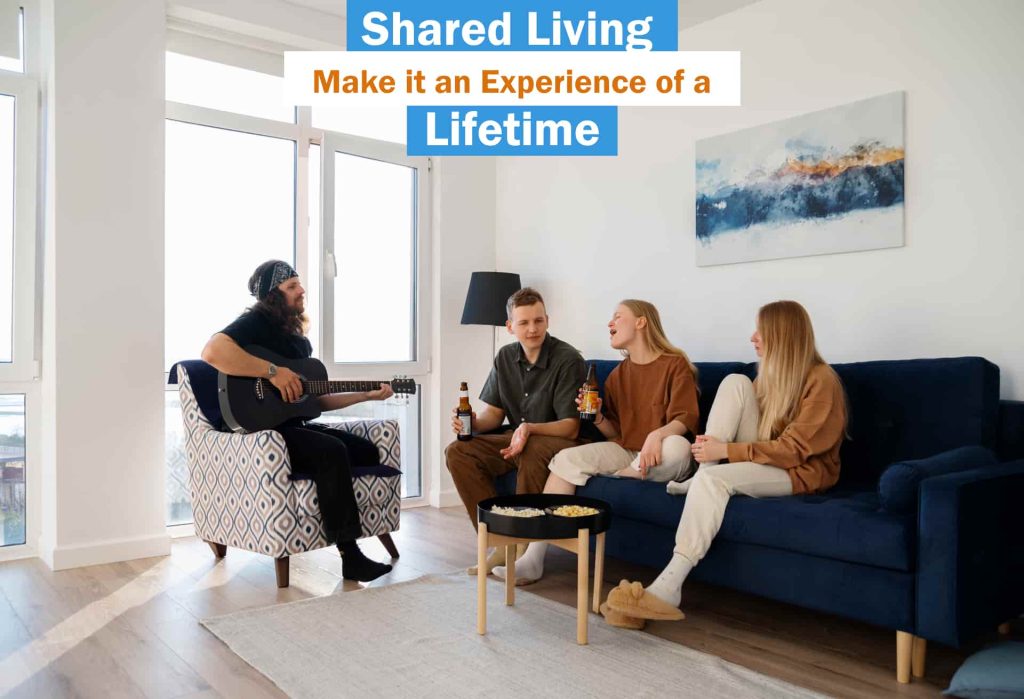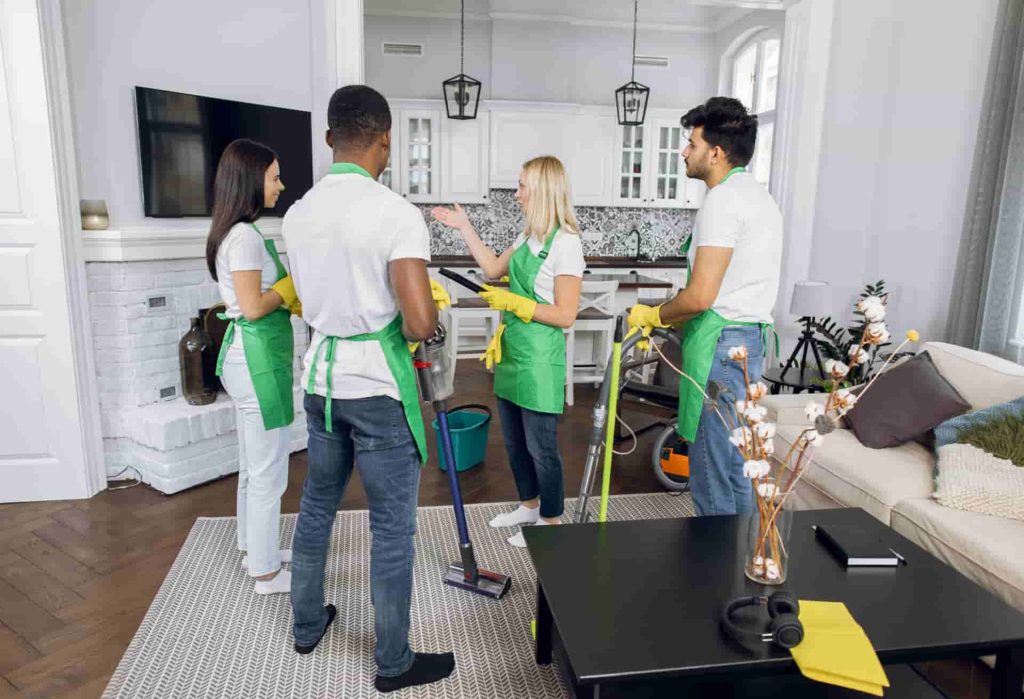
A unique living experience is gaining momentum in the heart of Europe, particularly in Germany, referred to as the Wohngemeinschaft (or the WG), the direct German translation for shared apartment living. The concept isn’t just a mere housing option; it’s a lifestyle choice, rapidly becoming a hallmark of contemporary German culture.
But the question is, what really drives this surge in popularity? Students, young professionals, and expatriates are increasingly turning to WGs as their preferred way of living.
But why?
Is it the cost-effectiveness, the social interaction, or perhaps the cultural immersion that makes WG so appealing? What should newcomers know before diving into this communal living experience? As Germany continues to attract people from across the globe, understanding the nuances of WG living is also becoming increasingly significant.
We delve into the idea of shared communicable living. We spoke to some of our tenants and they had a few words of wisdom to share, which we have summarized down into seven indispensable tips to ensure that your experience is not just comfortable, but also enriching and rewarding.
Our 5 Tried and Tested Tips to Make Shared Apartment Living a Comfortable Experience
We have spoken and enquired and delved deep into the phenomenon of shared apartment living. The following tips are a result of this fun, extensive research:
#1 Understanding the Cultural Norms
When you are a guest in another country, it is crucial to grasp the underlying cultural norms that shape everyday interactions. In Germany, certain values like punctuality and privacy are not just preferences; they are the pillars of social conduct.
Punctuality, for instance, is revered almost as a virtue in Germany. It signifies respect and reliability, two traits highly valued in German culture. Whether it’s paying rent, attending a house meeting, or sharing a meal, being on time is a simple yet profound way to show respect for your roommates’ schedule and commitments.

Privacy, on the other hand, is a sacred concept. Germans highly value their personal space and quality time, so it is extremely important to both establish and respect the boundaries of people you are living with. Knock before entering someone’s room, keep shared spaces tidy, understand socialising cues and establish ground rules for shared household chores and groceries.
How to Interact With Your Roommates to Establish A Cordial Relationship
- Communicate clearly. Discuss issues immediately and clarify doubts without letting it fester into arguments, disagreements and resentment.
- Respect shared spaces. If you are using a common area, it’s your responsibility to make sure that it is kept neat and clean for the next person’s use.
- Understand and adhere to quiet hours. The concept of Ruhezeit or quiet hour is an important part of German culture. It is usually practiced in the evening and on Sundays. Talk to your roommates about whether this will be followed in your shared abode as well.
- Participate in household responsibilities. Split the duties and make sure to always complete your side of the tasks within the stipulated time period.
- Be open to new experiences. Living with people outside of your culture is an excellent opportunity to learn and grow. Share your traditions, learn about your roommates’, celebrate together and make living a fun experience for everyone.
- Show interest in their lives. While it is necessary to respect the privacy of your flatmates, it does not mean you cannot be a friend to them. Schedule time to sit down together, catch up with them and maybe even share a meal or watch a movie.
Check Out Some of the Best German Cuisines At a Glance!
#2 Finding the Right WG
Looking for the perfect Wohngemeinschaft (WG) in Germany is an adventure in itself. It’s not just about finding a place to stay, but also, about discovering a living space that aligns with your lifestyle, budget, values and the people you want to share your daily life with.
Popular Websites and Local Resources to Look At
The digital revolution has made searching for the right WG even more accessible than before. Websites like WG-Gesucht, ImmobilienScout24 and eBay Kleinanzeigen are popular for those seeking out shared housing.
Another platform that needs to be on your radar is Urban Ground. They not only offer shared housing, but apartments for rent as well, with 3-dimensional, distance apartment viewings and a transparent signing process.
These resources offer detailed listings with photos, descriptions, and often, insights into the personalities and preferences of potential roommates. Local bulletin boards in universities or community centers are also valuable resources, especially for those looking for a more personal touch in their search.
Importance of Location, Price and Roommate Compatibility
Location
The old real-estate adage of ‘location,location,location, holds true for WG living. Consider proximity to universities, workplaces, public transportation, and local amenities. Each city has its own character, so whether you’re looking for the vibrant nightlife of Berlin or the quieter, scenic charm of Freiburg, location will significantly impact your living experience.

Price
Budgeting is key. Prices can vary widely depending on the city, neighbourhood and locality you want to live in. Ensure that the rent fits comfortably within your budget, including additional costs like utilities, internet and possibly a Nebenkosten (maintenance costs).
Roommate Compatibility
Obviously, if you are opting for shared apartment living in Germany, you are also likely opting for shared lifestyles. The more compatible you are with your roommate/s, the better.
A few questions you may need to ask might include: Do they lead a similar lifestyle? Are their habits and schedules compatible with yours? Make sure to set your boundaries straight in the beginning and conduct thorough roommate interviews about expectations, lifestyles and habits before picking a roommate.
Also read: Essential Phrases to Make Your Apartment Hunting Process a Breeze!
#3 Respect Shared Spaces
Living in a WG necessitates a communal spirit, especially because it contains shared spaces like the kitchen and the bathroom. Maintaining these spaces not only ensures a pleasant living experience, but fosters respect and harmony among roommates.
Here are some tips from our correspondents on the matter:
- Establish a cleaning roster: Create a schedule for regular cleaning of shared spaces. Get a dry-erase board or a chalkboard, write it down and display it in a location where it is visible to everyone to prevent any confusion or resentment about who should clean next.
- Clean as you go: One of our tenants believes in the ‘30-minute cleaning sprint’. The idea is simple, you set a 30-minute timer and you clean as much as you can. Most of the time, you would have gotten the work done within those uninterrupted 30 minutes of focused cleaning.
- Respect personal items: Be mindful and careful with your roommates’ personal items. Don’t use or move someone’s belongings without permission and make sure that your items don’t clutter shared spaces.
- Shared storage solutions: Organise a system for shared storage, especially in the kitchen. Allocate shelves or sections in the fridge and cupboards to avoid mix-ups or overcrowding.
- Clear communication: If issues arise, address them respectfully and directly. Open communication is the best way to resolve conflicts (which will most definitely arise).
- Respect privacy and boundaries: No matter what you do or do not do, please understand that everyone needs their space and time alone. Do whatever you can to make sure that your roommates feel welcome in their own space and not like a refugee living in their house.

The bottom line is to acknowledge that shared living apartments are a collective responsibility. It is almost like a marriage of sorts and all parties need to be in a constant state of negotiation and compassionate understanding for it to work properly.
#4 Maintain Clear Communication and Resolve Conflicts Constructively
The unique dynamic of a WG requires the initiation and maintenance of open and honest communication. Clear communication paves the way for understanding and respect among roommates, which is extremely important for a harmonious living environment.
We have a few thoughts on how to communicate clearly and resolve conflicts constructively when living in shared apartments:
- Establish open dialogues: Encourage regular meetings or casual discussions with your roommates to share thoughts and address any concerns. This proactive approach not only helps prevent misunderstandings, but builds a foundation of trust.
- Be direct, but mindful: When discussing issues, it is always important to remember that the person on the other side of the conversation is also a human being. Be respectful and empathetic and willing to listen to the POV of the other person.
- Engage in active listening: Pay attention to what your roommates are saying and show that you understand their point of view, even if you disagree.
- Compromise and flexibility: Be willing to compromise as much as possible without crossing your own boundaries. Conflict resolution involves meeting the other person halfway, so be open to finding a middle ground that works for everyone.
- Avoid escalation of conflict whenever it arises: If a disagreement arises, try to resolve it calmly without escalating the situation. Take a break if emotions run high, and revisit the discussion later.
- Seek external help if needed: If conflicts persist or become too complex, consider seeking external mediation, such as a neutral third party or counselling services offered by universities or community centers.
You might enjoy this: Cost of Living in Germany For Students: A Simple Breakdown

#5 Fully integrate into your WG Experience
Living in a WG offers much more than just a roof over your head. It’s a unique opportunity to immerse yourself in a rich social and cultural experience. We have collated a few ways to fully tune into and benefit from your time in a WG.
Engage with your roommates
- Participate in shared activities: Get to know them a little better. They are going to be your housemates, confidants and friends for the period of time you are living there. Join or organise regular activities such as communal meals, movie nights or outings. These shared experiences foster camaraderie and create fun and enjoyable memories.
- Celebrate festivities together: Whether it’s a traditional German holiday or an international celebration, participating in these festivities with your roommates can be a delightful way to learn about different cultures.
- Share skills and hobbies: Teach each other cooking recipes, language skills or share one of your hobbies with them. This helps you build a daily routine and stronger bonds.

Benefits of Living in a WG
There are several benefits to a shared living apartment set-up. Especially, when you live in a country by yourself, homesickness and loneliness is a part and parcel of that experience.
- Make new friends: WGs are often a melting pot of individuals from diverse backgrounds. This environment is perfect for forming new friendships that can last a lifetime.
- Learning new cultures: Living with people from different cultural backgrounds allows for an organic and immersive way to learn about various customs and traditions.
- Improving language skills: For those looking to improve their German language skills, there is really no better way of practicing daily than with native speakers. Roommates are often your first teachers and language partners.
- Foster an attitude of independence and responsibility: When you are in a shared living apartment, you learn a number of important life skills including budgeting, conflict resolution and self-reliance.
- Networking opportunities: Your roommates and their friends can become valuable professional and social contacts, expanding your network in ways you might not have imagined.
Do not miss this: How Does Healthcare in Germany Work? Our Insider Tips and Tricks
Shared Apartment Living: An Experience of a Lifetime
Shared apartment living in Germany, while initially daunting, can be a deeply enriching experience. With these tips, you can truly transform your cohabitation journey into one of growth, understanding, and memorable interactions.
Whether it is respecting shared spaces, engaging in open communication or embracing the unique WG culture, each step contributes to a harmonious living environment.
If living in shared apartments is difficult, Urban Ground has several other housing to offer including studio apartments for rent in Berlin and other cities in Germany. They are the perfect size for students and couples.
Remember, living with strangers isn’t just about sharing a space; it’s an opportunity to broaden your horizons, forge lasting friendships, and immerse yourself in a vibrant tapestry of German life.
Make sure to approach it with an open mind and heart and watch your WG become more than a place to stay, rather a home to cherish.




